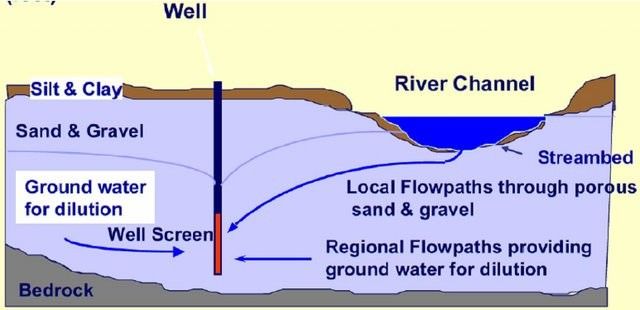Riverbank Filtration (RBF): A Cheap Solution for Safe Water Production or a New Challenge?
Published on by Mahmoud Hussein, Holding Company for water and wastewater - Manager of drinking water quality Department in Technology
RBF has been introduced by many research and review articles to be the magic solution for water treatment and easy production of safe drinking water with a minimum money.
That fits with the poor communities in developing countries especially with a limited budget for water solutions and big water demands. In addition, RBF has proven its resistance towards surface water pollution events as it depends on abstracting water that is filtered naturally through the river bank.

Many countries have been reported to use the RBF in producing drinking water. Here it comes to be an attractive option for the Egyptian technical, financial and environmental conditions. By investigating the feasibility of the RBF technology under the Egyptian conditions many research papers have proven its applicability and listed its advantages and benefits to the government and the community as well, but very limited work have addressed the potential risks and drawbacks of the technology.
To find out what could be the weak points in applying this technology in Egyptian environment we should take a close look for the present situation of groundwater wells however, it is a completely different technology but here man should focus on the attitude of the served community towards the water comes from the ground.
“Egypt is the Nile gift” – said Herodotus, this sentence is engraved in the mind of every Egyptian which makes the community stand against any groundwater for drinking proposes especially if a surface water resource is available (the RBF Case). Moreover, the protection of the abstraction wells in Egypt is a challenging issue, especially there are a very little awareness and knowledge among the Egyptian communities regarding the safe and protection zones around the wells, especially rural areas and Upper Egypt (the target areas for applying RBF).
Now, the decision and policymakers have a very complicated issue to overcome, RBF is an innovative, low cost and safe technology but the Egyptian environment and community may reject the application and could threaten the sustainability of this technology in Egypt.
So, from your point of view, what are the potential actions should be taken to assure the sustainability of the RBF technology in Egypt if it comes to the execution phase?
References:
Shamrukh, M., & Abdel-Wahab, A. (2008). Riverbank filtration for sustainable water supply: application to a large-scale facility on the Nile River. Clean Technologies and Environmental Policy, 10(4), 351-358.
Ghodeif, K., Grischek, T., Bartak, R., Wahaab, R., & Herlitzius, J. (2016). Potential of river bank filtration (RBF) in Egypt. Environmental Earth Sciences, 75(8), 671.
Shamrukh, M., & Abdel-Wahab, A. (2011). Water pollution and riverbank filtration for water supply along river Nile, Egypt. In Riverbank filtration for water security in desert countries (pp. 5-28). Springer, Dordrecht.
Ray, C. (2008). Worldwide potential of riverbank filtration. Clean Technologies and Environmental Policy, 10(3), 223-225.
Ray, C., & Shamrukh, M. (Eds.). (2010). Riverbank filtration for water security in desert countries. Springer.
Doussan, C., Ledoux, E., & Detay, M. (1998). River-groundwater exchanges, bank filtration, and groundwater quality: ammonium behavior. Journal of environmental quality, 27(6), 1418-1427.
Attached link
https://www.linkedin.com/pulse/riverbank-filtration-rbf-cheap-solution-safe-water-new-mahmoud-fouad-/Media
Taxonomy
- Treatment
- Filtration
- Research
- Filtration
- River Studies
- Environment
- River Engineering
- River Restoration
- Water Supply
- River Engineering